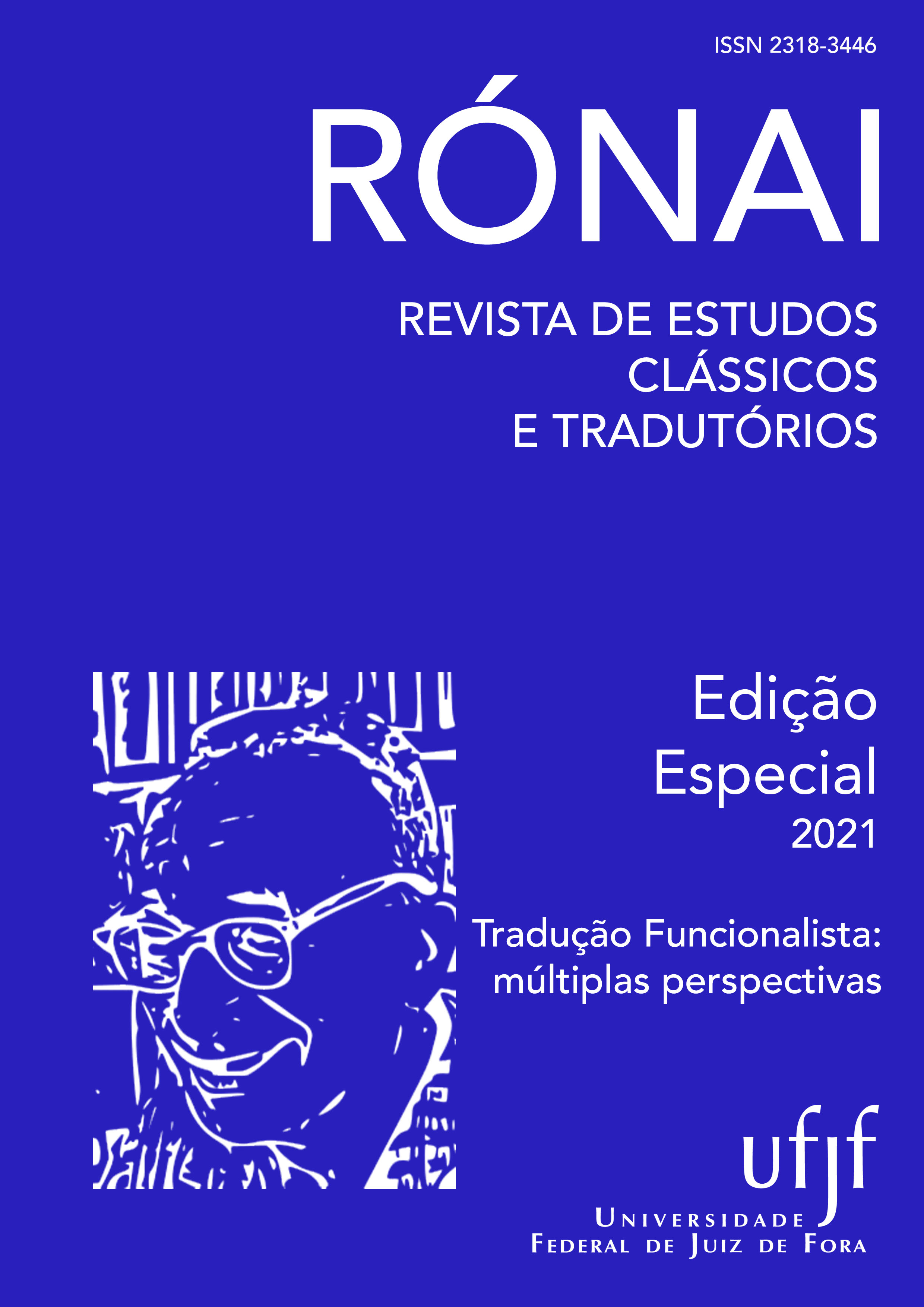Functionalist Perspective of Translation on Brand Migration in the Context of China and Brazil
DOI:
https://doi.org/10.34019/2318-3446.2021.35551Keywords:
translation of brands, functionalist theory, Principle of PurposeAbstract
According to the functionalist theory, translation is a process of intercultural communication that has as result a text that can work appropriately in specific situations and contexts. From this point of view, this paper aims to explore the function of translation and the application of functionalist approaches to the translation of brand names in the context of China and Brazil, analyzing real examples. Due to its particular nature, a brand name must be translated in a very different way than that of literary, scientific or works of other genres. The analysis conducted in this paper shows that the most successful brand name translations are those that follow the functionalist theory – instead of those more faithful to linguistic aspects –, that is, the translation focused on maintaining the function and purpose of the translation - the brand's dissemination and attracting customers, in this specific case.
Downloads
References
BERMAN, Antoine. A tradução da letra ou o albergue do longínquo. Trad. Marie-Hélène Catherine Torres, Mauri Furlan e Andréia Guerini. Rio de Janeiro: 7Letras/PGET, 2007.
FENG, Xiuwen. On aesthetic and cultural issues in pragmatic translation. New York: Routledge, 2017.
GIACOMO Leopardi. Trechos do Zibaldone di Pensieri sobre tradução. Trad. Andréia Guerini. In: GUERINI, Andréia; ARRIGONI, Maria Teresa (org.). Clássicos da teoria da tradução. Florianópolis: UFSC / Núcleo de Tradução, 2005. p. 163.
HOLZ-MÄNTTÄRI, Justa. Translatorisches Handeln: Theorie und Methode. Helsink: Suomalainen Tiedeakatemia, 1984.
HÖNIG, H. G. Positions, power and practice: Functionalist approaches and translation quality assessment. In: SCHÄFFNER, C. (ed.). Translation and quality. Philadelphia: Multilingual Matters, 1998. p. 6-34.
HÖNIG, H. G.; KUSSMAUL, P. Strategie der Übersetzung: Ein Lehr- und Arbeitsbuch. Tübingen: Gunter Narr Verlag, 1982.
JABIR, J. K. Skopos theory: basic principles and deficiencies. Journal of the College of Arts, University of Basrah, n. 41, p. 72-84, 2006.
NORD, C. Translating as a purposeful activity functionalist approaches explained. Manchester: St. Jerome, 1997.
NORD, C. Textanalysis in translation. Tradução de J. Gras Verlag. Amsterdam: Rodopi, 2005.
REISS, K. Type, kind and individuality of text: decision making in translation. Tradução de Susan Kitron. Poetics today, v. 2, n. 4, p. 121-131, 1971.
REISS, K.; VERMEER, H. Fundamentos para una teoría funcional de la traducción. Madrid: Ediciones Akal, 1984.
SCHÄFFNER, C. Action (Theory of translational action). In: BAKER, M. (ed.) Routledge encyclopedia of translation studies. London: Routledge, 1998. p. 3-5.
SNELL-HORNBY, M. Translations studies: an integrated approach. Amsterdam/Philadelphia: John Benjamins Publishing, 1995[1988].
SONTAG, S. The world as India. 2007. Disponível em: <http://www.susansontag.com/prize/onTranslation.shtml>. Acesso em: 12 mar. 2019.
VERMEER, H. Aufsätze zur Translationstheorie. Heidelberg: Mimeo, 1983.
Downloads
Published
How to Cite
Issue
Section
License
Copyright (c) 2022 Li Ye

This work is licensed under a Creative Commons Attribution 4.0 International License.
Copyright
The authors of the published contributions agree with the following items:
1. The authors keep the copyright and convey to the journal the right of first publication, the work being licensed under a Creative Commons Attribution License 4.0 International.
2. The authors are allowed and stimulated to publicize and distribute their work online after the publication in the journal, recognizing first publication in this journal.
3. The authors of the approved works authorize the journal to distribute their content, after publication, for reproduction in content indexes, virtual libraries and similars.
For more information about Creative Commons Attribution License 4.0 International, please, go to: https://creativecommons.org/licenses/by/4.0/deed.en
Editorial exemption
The authors of the published contributions are entirely and exclusively responsible for their contents. Its content does not represent an official position of Rónai - Revista de Estudos Clássicos e Tradutórios neither of Faculdade de Letras da Universidade Federal de Juiz de Fora or their partner institutions.



